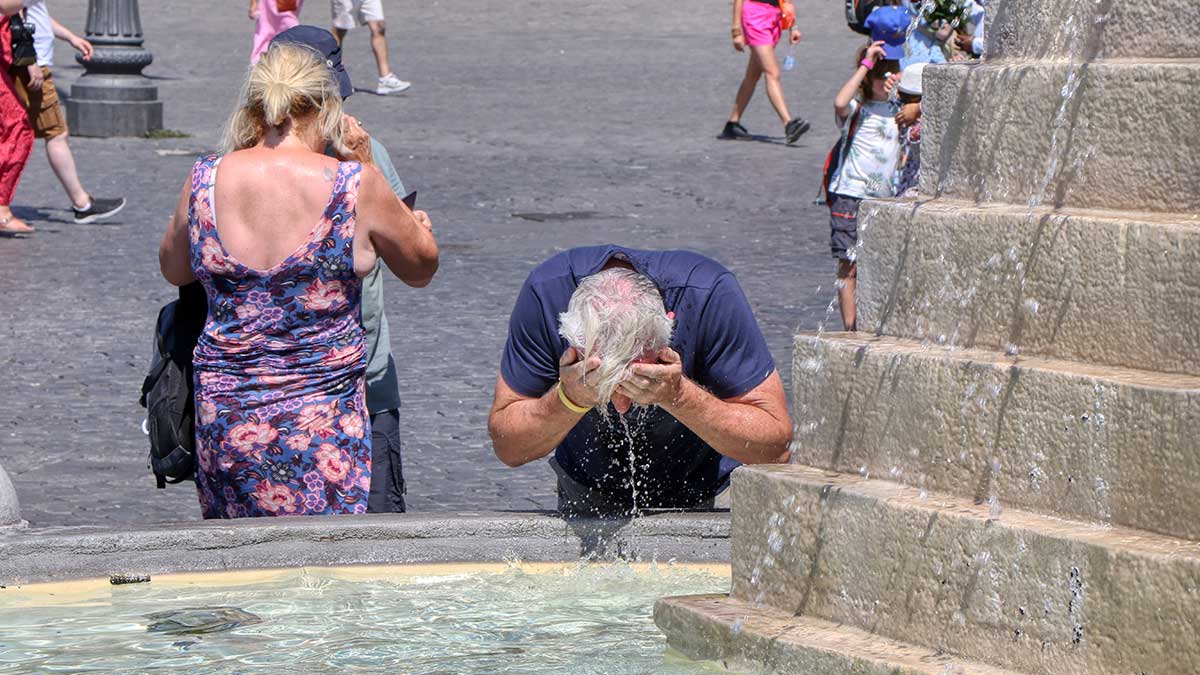Summer heat is reaching unprecedented heights in the Northern Hemisphere this season, with rising global temperatures increasingly impacting travellers, and heat-related health issues on flights becoming more common.
Yet despite the heat, tourist season is flourishing, with record numbers flocking to popular hotspots such as Rome, Athens, and Death Valley in the US.
Key points:
- There’s a growing concern about extreme summer heat being a regular future occurrence due to climate change.
- Tourist attractions worldwide utilise cooling stations and misting tents, among other strategies, to accommodate visitors during the intense heat.
- Travel insurance and consultation with travel advisers are vital to navigate potential weather-related hitches safely.
- The importance of health maintenance while travelling is emphasised, with specific advice to monitor physical responses, stay hydrated, plan activities wisely, and seek shelter immediately when unwell.
Regardless of blistering temperatures discouraging travellers, holiday season is thriving. Tourists are still swarming to the already typically hot Death Valley National Park to witness the record-shattering 134°F (56.6°C).
European tourist hotspots Rome and Athens are also copping a considerable influx, and are expected to surpass summer visitor records.
Luxury travel consultant Rey Alton, famous for services to the Italy and the Mediterranean, told USA Today that it’s one of the busiest seasons he’s seen in the past 25 years.
Should we become accustomed to this severe weather?
Dr Neelu Tummala, co-director of the Climate Health Institute at George Washington University, is concerned that climate change will be a prominent factor contributing to severe summers. She says it’s highly likely this heat will become a frequent phenomenon in the coming years.
To cope with tourists unfazed by the sizzling summer heat, Italy and other countries in the Mediterranean region are setting up cooling stations near popular attractions and offering water and misting tents for a heavenly respite from the heat.
Even amid such scorching conditions, Mr Alton said that he hadn’t heard about any Italian attractions shutting down due to the heatwave, but says that might not be far off.
Meanwhile, in Greece, the beloved Acropolis, which ordinarily basks under the scorching sun and offers minimal shaded areas, shut its doors between midday and 4pm due to the significant health hazards posed to visitors and workers.
In the United States, despite the extreme southern and central heat, popular national park visits have not been affected – yet.
So, what should you do before heading to hot countries?
Before planning your next trip, remember to:
- insure your journey with comprehensive travel insurance
- consult with a travel adviser to help you plan your trip to avoid the extreme heat
- always verify with the tour operators your cancellation policy due to unforeseen weather conditions.
Maintaining your health while travelling is vital, so keep hydrated, plot your activities smartly, and keep a tab on how your body is responding to these physical exertions.
Dr Tummala points out that increased activity while travelling could lead to thermal stress and increased cardiac activity, especially for older people with underlying health conditions such as high blood pressure.
If dizziness, nausea, muscle cramps, excessive sweating, or headaches kick in, its time you took a break, and find a cooling shelter, hydrate quickly and take it slowly.
“Prepare well, and take necessary precautions to keep your travels fun and worry free,” says Dr Tummala.
What’s the hottest country you’ve visited? How did you manage? Let us know in the comments section below.
Also read: As heat records fall, how hot is too hot for the human body?

